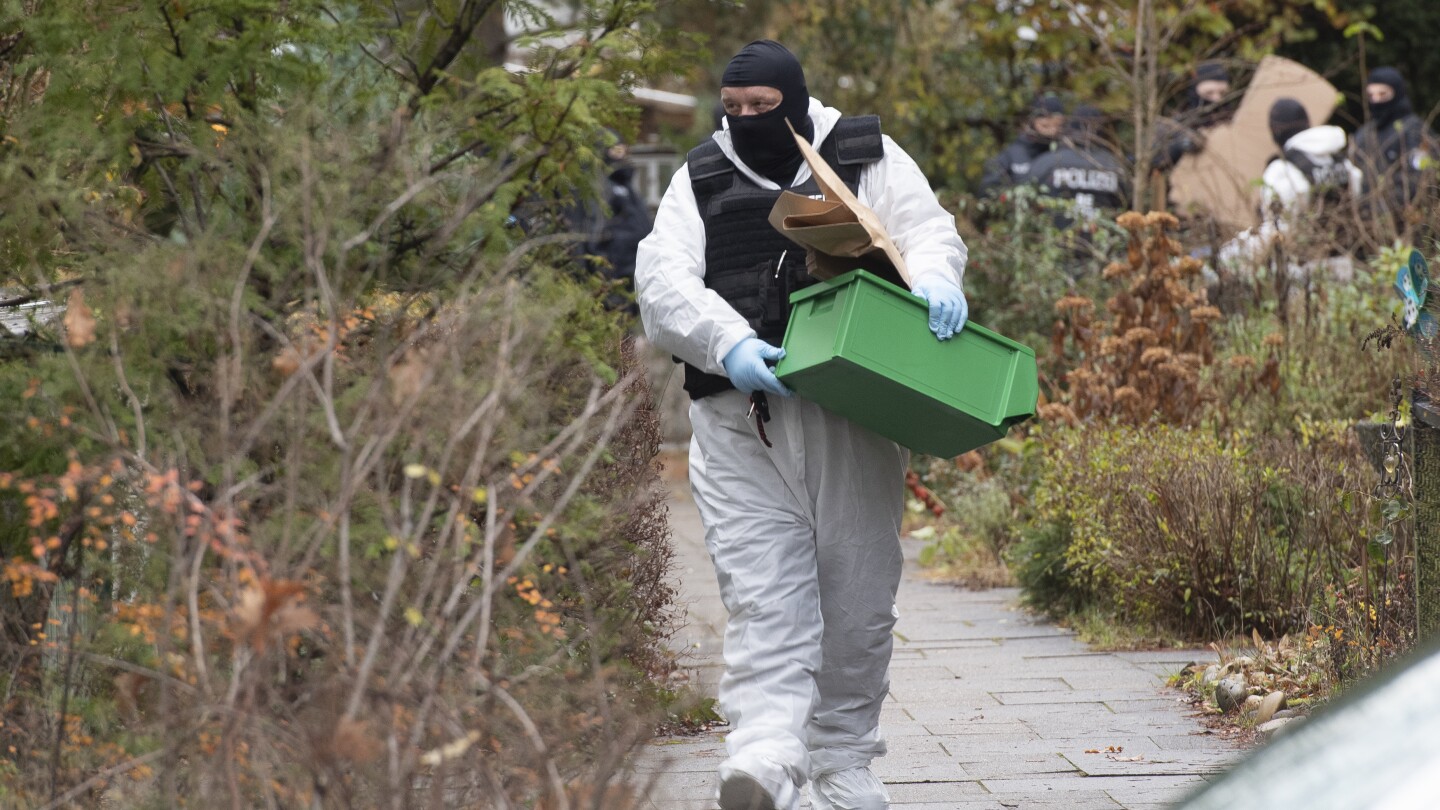BERLIN (AP) — Nine people charged in connection with an alleged far-right plot to topple the German government are going on trial Monday in one of three cases linked to the purported conspiracy, which came to light in late 2022.
The trial opening in Stuttgart is the first one and is focused on those defendants of the so-called Reich Citizens group who allegedly were part of the so-called military arm, German news agency dpa reported.
Federal prosecutors in December filed terrorism charges against a total of 27 people, one of whom has since died.
Nine other suspects, among them a self-styled prince and a former far-right lawmaker, will go on trial on May 21 at a Frankfurt state court in the most prominent of the three cases. The other eight will go on trial in Munich on June 18.
The Frankfurt case includes Heinrich XIII Prince Reuss, whom the group allegedly planned to install as Germany’s provisional new leader; Birgit Malsack-Winkemann, a judge and former lawmaker with the far-right Alternative for Germany party; and a retired paratrooper.
The proceedings of the three cases are expected to last well into 2025.
Prosecutors have said that the accused believed in a “conglomerate of conspiracy myths,” including Reich Citizens and QAnon ideology, and were convinced that Germany is ruled by a so-called deep state.
Adherents of the Reich Citizens movement, or Reichsbuergerbewegung in German, reject Germany’s postwar constitution and have called for bringing down the government, while QAnon is a global conspiracy theory with roots in the United States.
According to prosecutors, the group planned to storm into the parliament building in Berlin and arrest lawmakers. It allegedly intended to negotiate a post-coup order primarily with Russia, as one of the allied victors of World War II.
Most of the nine suspects in the Frankfurt trial are charged with membership in a terrorist organization and “preparation of high treasonous undertaking.” The other 17 alleged members of the group have been charged in separate indictments at the courts in Stuttgart and Munich.

